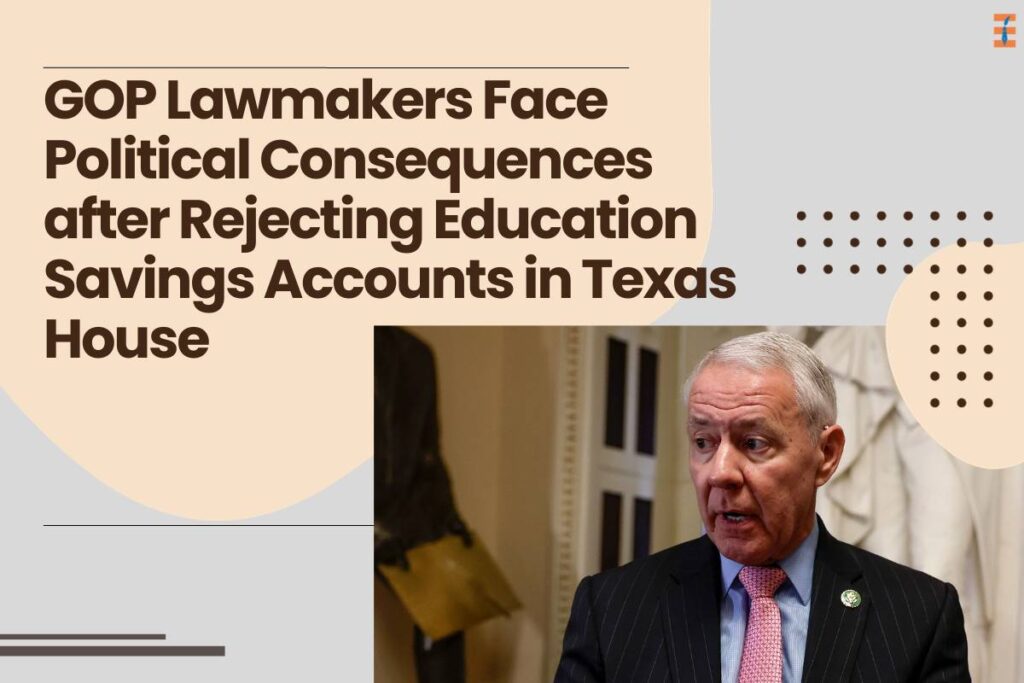In a recent setback for Texas Republicans, the rejection of taxpayer-financed education savings accounts (ESAs) by the state House is raising questions about the future of a comprehensive education bill. The bill, known as HB 1 and authored by Rep. Brad Buckley, R-Salado, faced resistance in the House, leading to its return to committee, where it may face an uncertain fate.
Concerns about Accountability
The defeated legislation encompassed more than just ESAs; it included provisions for increased funding for school districts and pay raises for teachers. Notably, the bill proposed a $4,000 bonus for full-time educators and additional pay raises, along with a boost in funding for school districts per student. However, the contentious Education Savings Accounts provision, which would have allocated $10,500 per student per year for private school assistance, did not garner sufficient support.
The rejection has exposed a division within the Republican ranks, with lawmakers like Rep. Glenn Rogers, R-Graford, opposing ESAs due to concerns about accountability. On the other side, Rep. Brian Harrison, R-Waxahachie, supported ESAs, emphasizing the importance of giving parents the choice to determine the best educational setting for their children.
A Significant Blow to Governor
This decision represents a significant blow to Governor Greg Abbott, who has been a vocal advocate for education savings accounts throughout the state. In response to the House vote, Abbott expressed determination to continue pushing for school choice, despite the setback. The divide among Republicans on this issue is drawing attention, especially as Senator Ted Cruz signals that support for school choice could influence his endorsement decisions. Cruz stated that he examines every legislator’s vote on school choice, and those voting against it may face an uphill battle for his endorsement.
Notably, Sen. Cruz’s stance underscores the political implications for Republican lawmakers who voted against Education Savings Accounts. While some, like State Rep. Justin Holland, R-Heath, stand by their decisions, others may face challenges in securing endorsements in the upcoming primary elections.
Calling Additional Special Sessions
Governor Abbott, undeterred by the setback, has hinted at the possibility of calling additional special sessions if his school choice policy does not pass. This prospect raises concerns among lawmakers who prefer to be in their home districts, actively campaigning for primary elections scheduled for March.
As the political ramifications unfold, the rejection of ESAs in the Texas House is poised to have lasting consequences, potentially shaping the political landscape for Republicans in the state. The divide on education policy within the party highlights the complexity of balancing fiscal responsibility with the desire for expanded school choice options.

